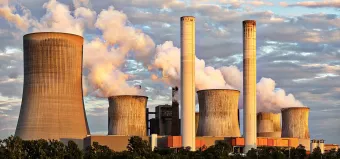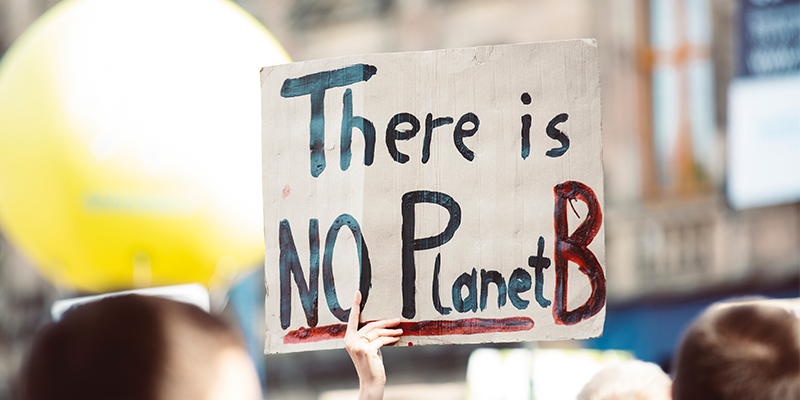From climate change to cyber attacks – our world’s 10 most urgent risks

From climate change to cyber attacks – our world’s 10 most urgent risks
The world is facing a period of unprecedented crisis. From the natural to the digital environment, humanity is making our own living spaces increasingly hostile.
Leaders need to identify the biggest risks to humanity to ensure effective action. The World Economic Forum’s 2019 latest Global Risks Report has helped by singling out the ten most likely global risks.
*Note: this article was written before the outbreak of the Coronavirus/COVID-19 pandemic
Extreme weather events
The devastating effects of extreme weather aren’t just likely, they’re certain. In the past few months alone, we’ve seen a typhoon hit Japan, wildfires rage through California and India’s longest and wettest monsoon in 25 years. These events lead directly to numerous deaths, as well as disruptions in the form of homelessness, displacement and food shortages.
Failure of climate-change mitigation and adaptation
For decades, we’ve recognised that the climate is in crisis. Though there have been improvements, experts agree that not enough is being done. A combination of factors, including costs, market failures and behavioural obstacles, means that we’re not moving fast enough to cope with the climate crisis.
Major natural disasters
Devastating and unexpected, natural disasters are high on the list of leaders’ concerns. Previously unrecognised disasters, such as the combined effects of storms and earthquakes, are finally being accounted for. Humanity can’t stop these events but can put measures in place to minimise their impact.
Massive incident of data fraud/theft
There were an estimated 2.6 billion data breaches in 2017 – that amounts to millions of pieces of information stolen every day. Though security measures are improving, so are the skills of the cyber criminals, therefore businesses as well as individuals are at risk. Massive increases in data fraud threatens the viability of the digital economy.
Large-scale cyber attacks
Less frequent but more dramatic, large-scale cyber-attacks are being carried out not just by criminal networks but by national agencies. As a tool of disruption and proxy warfare, they are undermining businesses, threatening democratic processes and sometimes damaging critical infrastructure.
Man-made environmental damage and disasters
From Amazon forest fires to the Pacific garbage patch, many parts of the world are increasingly affected by man-made environmental damage. This has led to disastrous destabilisation in some regions. Take Lake Chad or Cape Town, South Africa for example.
Large-scale involuntary migration
Political turmoil, economic failure and environmental disasters are driving millions from their homes. In the Americas, many head for the US, while in Africa and the Middle East, many are making perilous journeys to Europe. Such migrations are catastrophic for the people involved and the lands they leave behind, but also threaten the countries to which they are fleeing.
|
|
To equip yourself to respond to these challenges, join us for Virtual Learning Journey: Environment and Security 2021, led by Ms Anna Brach, Head of Human Security. |
Major biodiversity loss and ecosystem collapse
Environmental harm has destroyed millions of species and could lead to the collapse of entire ecosystems. One of the most well-known risk is the collapsing bee population, which threatens crops around the world. Falling biodiversity means shortages in potential future food and medicines as well as a deleterious effect on areas of natural beauty.
Water crises
Water shortages, many triggered by environmental degradation, are threatening lives across the globe. Loss of water can lead to crop failures, famine and conflicts over the control of critical supplies.
Asset bubbles in a major economy
In a fast-moving global market, a collapsing bubble in a major asset could cause chaos, as seen during the financial crisis of 2008. There are already signs of a property bubble, from high prices in Europe to falling values in the Gulf, but a bubble could arise in another area of the economy, bringing global market chaos.
Preparing for the worst
With the right skills, global leaders can help to reduce and manage these risks. To equip yourself to respond to these challenges, join us for our “Virtual Learning Journey: Environment and Security 2021” course, led by Ms Anna Brach, Head of Human Security.
Disclaimer: The views, information and opinions expressed in the written publications are the authors’ own and do not necessarily reflect those shared by the Geneva Centre for Security Policy or its employees. The GCSP is not responsible for and may not always verify the accuracy of the information contained in the written publications submitted by a writer.

